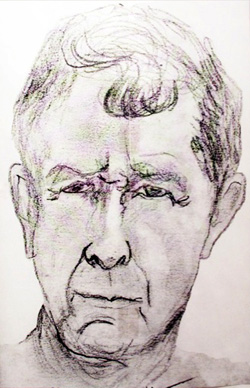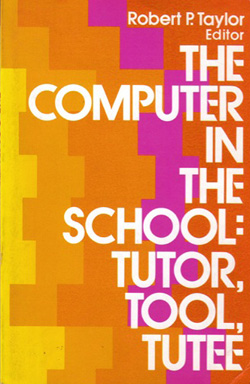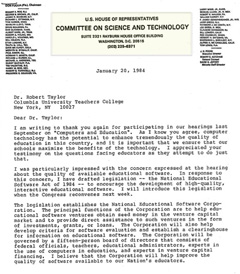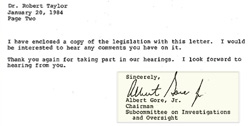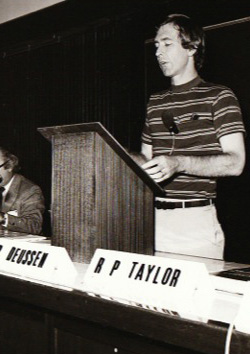Filed Under > TC People
Robert Taylor, Digital Pioneer and Retired TC Faculty Member Passes Away
Robert Taylor (Ed. D. '70), a digital pioneer who founded TC's Computing in Education Program in 1976 -- one of the first such graduate programs in the world -- passed away in late October.
Robert Taylor (Ed. D. ’70), a digital pioneer who founded TC’s Computing in Education Program in 1976 – one of the first such graduate programs in the world – passed away in late October.
Taylor edited the influential 1980 volume The Computer in the School: Tutor, Tool, Tutee and invented and applied a structured language to teach programming (FPL, or First Programming Language). During the 1980s he co-founded TC’s Department of Communication, Computing and Technology in Education and later served as its Chair for six years. Over the years, he worked with numerous public and private schools and educational organizations, including the Baghdad office of the United Nations and the ministries of education in Tunisia, Poland and the former Czechoslovakia.
Taylor’s invited testimony before a Senate subcommittee led by then-Senator Al Gore played a significant part in shaping Gore’s proposed 1984 National Educational Software Act, which was designed to encourage development of high-equality interactive educational software.
“Bob engaged digital technologies early and was both astute and prescient in understanding how they could serve education and daily living,” said Robbie McClintock, TC’s John L. and Sue Ann Weinberg Professor Emeritus in the Historical & Philosophical Foundations of Education.
“Bob was a pioneer in educational computing and an inspiration to all of us who thought that computers could have a positive effect in education,” said Howard Budin, Senior. Lecturer & Director and Adjunct Associate Professor, Computing in Education, who was hired at TC by Taylor. “He was a rare combination of humanist and technologist who infused his teaching with examples from history, religion and the arts. He trained many young technologist/educators who have had much influence in the field. He cared deeply about education around the world and made many trips to South Africa, Korea, and Eastern European countries to help train teachers of educational technology.”
Taylor’s father was a pioneering aviator who ran a flight school in Georgia.
“I’ve often thought about my dad – and about his father, an immigrant to the United States who died in the flu epidemic of 1918,” Taylor wrote in an essay in TC Today magazine in 2009. “They were both travelers whom technology enabled to cross distances and cultures.”
Taylor earned his B.A. in physics at Dennison University, an M.A. in Theology at the University of Chicago and wrote his TC dissertation on his four-year stint teaching mathematics in Uganda through the College’s Teachers for East Africa program. That study is believed to be the first to employ computer analysis of actual classroom dialogue.
Taylor’s first employment at TC was in the office of long-range planning, and he subsequently served as Founder and Director of TC’s first Academic Systems Computing and Information Management Office. He joined the College’s faculty in 1975, and during the course of his academic career worked on several projects funded by IBM and government agencies. Taylor also created the College’s first computer room for faculty and student use. He retired in 2009 as Associate Professor of Computing and Education.
An accomplished bass-baritone, Taylor sang with a local orchestra during his years in Africa and subsequently performed on more than 100 occasions in locations ranging from Kampala, Uganda to Bratislava, Slovakia – including appearances at TC convocation ceremonies during the 1980s and 1990s. His specialties were liturgical music and opera.
“People would invite me to a conference on computing and education and would find out that I could sing, and they’d say, ‘You want to sing in the cathedral on Sunday?’ So we’d have to discuss I could sing,” Taylor once recalled. “Then I just started taking music with me because people always wanted me to sing.”
Taylor was also a talented artist who documented his experiences with sketches that included renderings of past TC presidents Lawrence Cremin and Arthur Levine. Many of those works are on display in TC’s Office of Academic Computing Services in 234 Horace Mann Hall.
“Art and science, at their best, create mutual understanding and bridge the divide of our differences,” Taylor wrote in TC Today. “Thirty years ago, when my dad tried to call me in Uganda, it took him three days to get through. Today, with a click, computers can make that transmission near –instantaneous – but the journey is no less profound.”
Published Wednesday, Oct. 30, 2013
